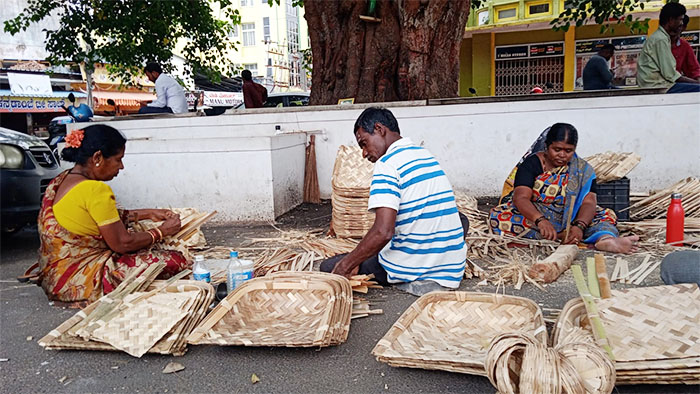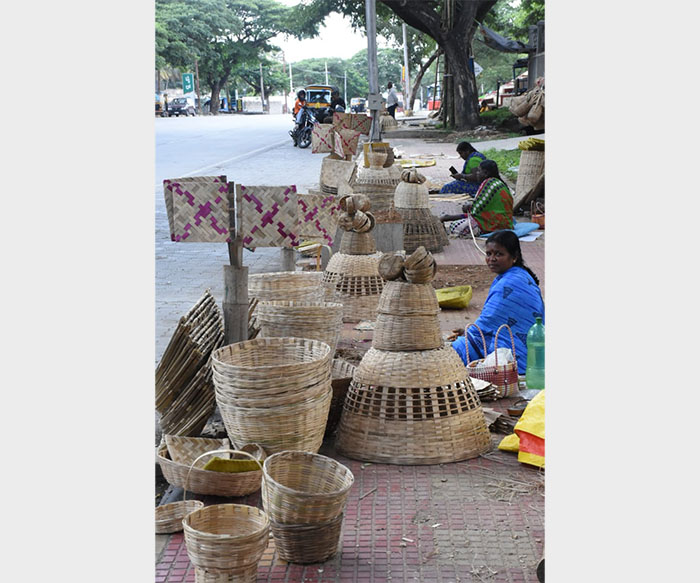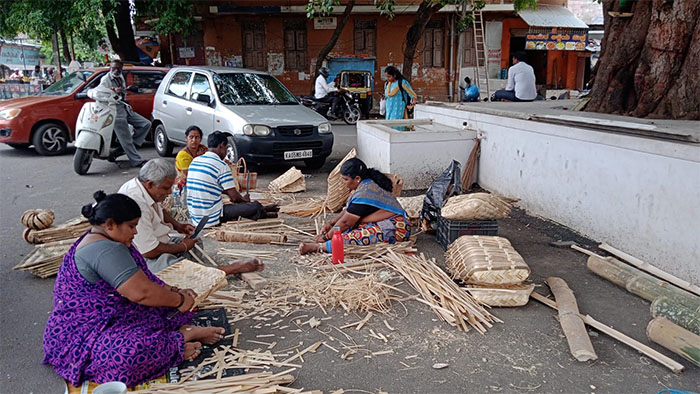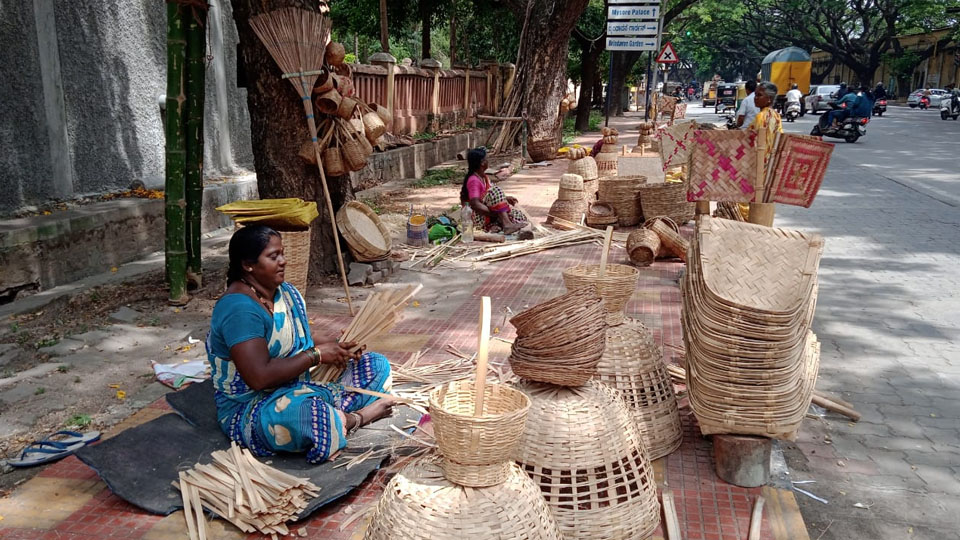Married Hindu women exchange ‘bagina’ in bamboo-made soops laced with turmeric
By M.B. Pavan Murthy
The verse, ‘Bidiru Nanarigalladavalu…” (Bamboo, to whom doesn’t I belong…) from Saint Shishunala Sharif’s song poignantly highlights the profound significance of bamboo in our lives, a significance that resonates even more prominently during the Gowri-Ganesha festival.
While plastic has become a ubiquitous alternative for many products, bamboo-made ‘mora’ or soop (containers used for winnowing rice and grains) continue to be in high demand.
With the upcoming Gowri-Ganesha festival on Sept. 18, it has become a tradition for women to seek out artisans skilled in crafting bamboo soop. These soops are traditionally offered, after being adorned with turmeric, to married women as part of the ‘bagina’ ritual, a practice that endures during the festival.

However, bamboo craftsmanship is not the purview of all. It remains a cherished tradition passed down through generations within the Medar community, who still rely on their artisanal skills for their livelihood. Like other sought-after festival items, bamboo artisans, especially those crafting soops, become highly sought-after during this festive season.
These skilled artisans, deeply engrossed in weaving bamboo strips, can be found beneath the grand banyan tree near the 101 Ganapathi Temple Circle at Agrahara and along the sidewalks of New Sayyaji Rao Road in Tilak Nagar.

Bamboo Bazaar hub
This area is famously known as the ‘Bamboo Bazaar,’ where they create various bamboo products, including baskets of different sizes for carrying fruits and food, as well as protective covers for backyard chickens to shield them from predatory birds. Hand fans and ladders are also among the products they fashion.
Throughout the year, a handful of three to four artisans diligently craft bamboo products near the 101 Ganapathi temple in Agrahara. However, their numbers swell to approximately 25 a few days before the festival, with artisans from Nanjangud joining in to meet the heightened demand. Once the festival concludes, they return to Nanjangud to continue their craft in the Temple Town.
Parvathi, one of the artisans near the 101 Ganapathi Temple, said, “To meet the demand during Gowri-Ganesha fest, we weave soops in both large and small sizes. Larger soops are sold at prices ranging from Rs. 130 to Rs. 140 per pair and smaller ones at Rs. 100 per pair. On the festival eve, the larger soops can fetch as much as Rs. 150 per pair or more. Gowri ‘Chibbalu’ alone sells for Rs. 150 per piece. However, heavy rainfall can disrupt the supply of raw bamboo, sourced from Kodagu. Bamboo poles are brought near RMC, from where we purchase according to needs. A 15-foot-tall bamboo pole costs Rs. 500.”
Parvathi, originally from Nanjangud, who has made Mysuru her home and works throughout the year, added, “Some artisans camp here 15 days before the Gowri-Ganesha festival. With high-quality bamboo poles, we can craft up to 30 large-sized soops. With still a fortnight left for the festival, business is yet to pick up.”

Community losing interest
However, Parvathi lamented the reluctance of young members of the Medar community to carry on the traditional craft. She said, “Not many have taken up the art of crafting bamboo products, even though most community members are concentrated in Nanjangud, Jayanagar, Nanjumalige, and Bamboo Bazaar in Mysuru city.”
Another bamboo artisan, Basavanna, remarked, “While most customers are from the city, the demand for bamboo products could surge if authorities address the plastic menace. There’s a belief among people that plastic soops shouldn’t be used for the ‘bagina’ ritual, which explains the enduring demand for bamboo-made soops.”
Lakshmi, who is diligently crafting bamboo products in Tilak Nagar, stated, “I, along with a few other artisans from Rajarajeshwari Colony, Medar Block, and Bamboo Bazaar, have been crafting bamboo products throughout the year. As the festival approaches, traders at Devaraja Market purchase bamboo soops in bulk from us. Most residents of our Colony still depend on traditional craftsmanship to make a living.”








Recent Comments